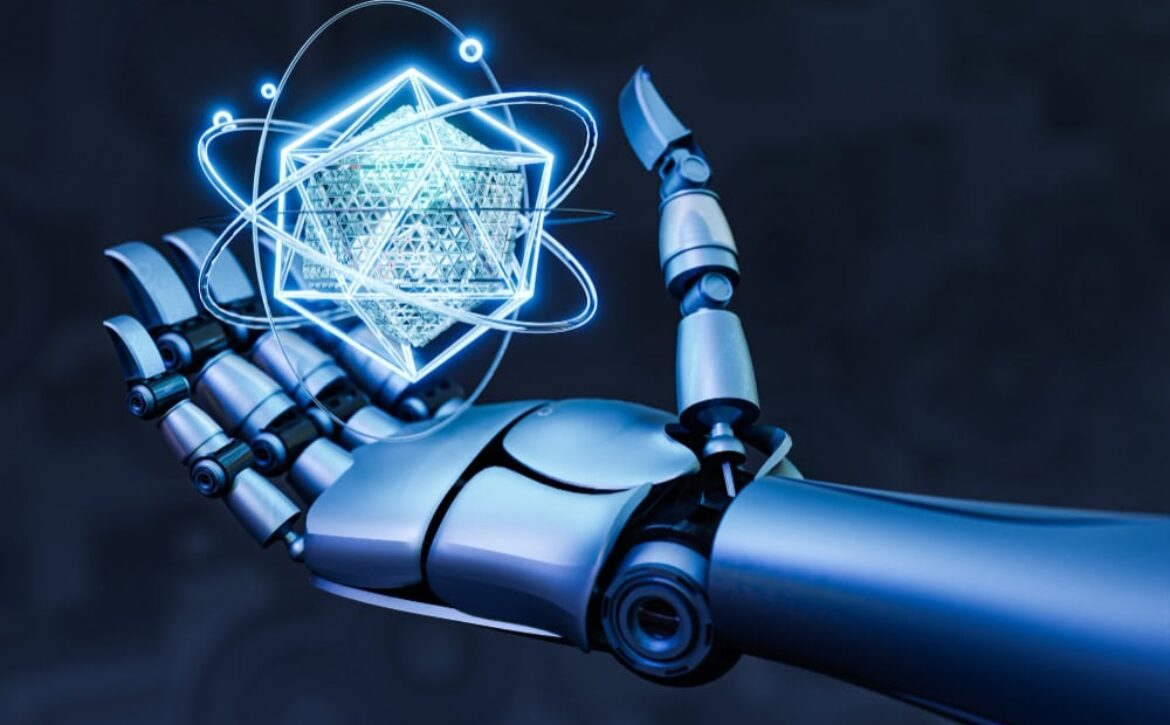Why AI & ML Matter in Custom App Development
In an era where AI-driven app development and machine learning in mobile apps define competitive advantage, businesses seek custom application development that is smart, scalable, and future-ready. At GoodWorkLabs, we harness artificial intelligence (AI) and machine learning (ML) to deliver transformative digital experiences. This article explores why AI and ML matter in custom app development and how our proprietary approach sets us apart.
1. What Are AI & ML and Why Are They Critical Today
AI (artificial intelligence) ensures software applications can simulate human intelligence, such as natural language processing (NLP), predictive reasoning, and personalized recommendations. Meanwhile, machine learning (ML) empowers these capabilities through data-driven algorithms that learn and improve over time.
As the demand for custom mobile app development and enterprise web applications continues to grow, integrating AI components isn’t just a fancy add-on; it’s a business imperative. Here’s why:
-
Data-driven personalization: Users expect apps to remember preferences, customize interfaces, and adapt to their usage patterns.
-
Intelligent automation: ML-powered functions like predictive maintenance, real-time fraud detection, and smart analytics streamline operations.
-
Enhanced UX: Conversational interfaces (chatbots, voice assistants), image recognition, and adaptive layouts promote better engagement.
-
Scalable innovation: AI models evolve with user feedback, unlocking continuous app improvement.
By embedding AI and machine learning early in the custom application development lifecycle, businesses gain speed, flexibility, and long-term strategic value.
2. Benefits of AI & ML in Custom App Development
| Benefit | Description |
|---|---|
| Personalized User Experience | Machine learning algorithms tailor content, UI, and features based on individual behavior data. |
| Smart Automation | Tasks like invoice processing, data entry, and chat support become faster and more accurate. |
| Predictive Insights | ML models forecast demand, churn, and user behavior—guiding strategic decisions. |
| Voice & NLP Integration | Voice-enabled features and chatbots streamline customer interaction. |
| Image & Video Intelligence | From biometric logins to quality assessments, computer vision adds robust functionality. |
| Enhanced Security | Anomaly detection, fraud prevention, and intelligent authentication keep data safe. |
These benefits underline why AI-enabled custom software development is no longer optional; it’s essential for long-term digital transformation success.
3. GoodWorkLabs’ Proprietary AI-Powered Processes
At GoodWorkLabs, we’ve formalized an AI+ML integration framework within our custom app development pipeline to ensure results are not just cutting-edge, but reliably scalable:
3.1 Discovery & Data Strategy
-
Define use cases where AI/ML boosts value (e.g., recommendation engine, NLP, predictive analytics).
-
Audit existing data to validate model readiness.
-
Map ethical and privacy implications into the design.
3.2 Prototype & Proof-of-Concept (PoC)
-
Develop rapid AI/ML prototypes using open-source frameworks (TensorFlow, PyTorch).
-
Use PoCs to test viability, data needs, and business alignment.
3.3 Iterative Model Training
-
Continuously improve models through real-world data and usage feedback.
-
Automate retraining pipelines to maintain accuracy.
3.4 Scalable Deployment
-
Deploy AI components as microservices or containerized APIs for seamless integration.
-
Utilize cloud infrastructure (AWS SageMaker, GCP AI Platform, Azure ML) for elasticity.
3.5 Ongoing Optimization
-
Monitor model drift and performance metrics.
-
Refine training datasets and feature engineering over time.
-
Ensure adaptive architecture aligns with evolving business needs.
This end-to-end framework positions GoodWorkLabs as a leader in AI-powered custom application development, rather than just a code vendor.
4. Business Use Cases: AI & ML in Action
Here are real-world scenarios where GoodWorkLabs leveraged AI and machine learning for custom app development:
4.1 Predictive Maintenance in Manufacturing
We built a machine-learning dashboard to analyze IoT sensor data and forecast equipment failure. Result: 25% reduction in downtime and significant cost savings.
4.2 Intelligent Customer Support
We integrated NLP-based chatbots into a client’s mobile app to automate Tier-1 queries, decreasing response time by over 70% and improving CSAT.
4.3 Personalized e-Commerce Experience
By embedding recommendation engines, we increased average order value by 15% and improved user retention.
4.4 Advanced Healthcare Diagnostics
We co-developed an image recognition tool to identify anomalies in X-rays, streamlining radiology triage and reducing diagnostic turnaround by 30%.
These use cases reflect how AI-enabled custom software development solves both operational and strategic challenges, from automation to personalization.
5. Solving Common Challenges with AI/ML Expertise
Building AI-powered custom apps is not without obstacles. Here’s how GoodWorkLabs addresses them:
5.1 Data Availability & Quality
Our team specializes in data pipeline setup, ETL processes, and synthetic data generation, ensuring effective model training.
5.2 Algorithm & Domain Expertise
We match subject matter experts (SMEs) with AI engineers to craft industry-tailored models from financial fraud to medical imaging.
5.3 Deployment Complexity
Our CI/CD + MLOps pipeline ensures that AI models are seamlessly versioned, containerized, and deployed with rollback capabilities.
5.4 Bias & Compliance
We embed fairness checks, audit logs, and data anonymization to ensure ethical design and adherence to GDPR, HIPAA, and other standards.
5.5 Cost & ROI
Our phased PoC-first model validates value before scaling, balancing initial investment with long-term business returns.
With deep capability in both AI engineering and domain adaptation, GoodWorkLabs mitigates risk while accelerating innovation.
Conclusion
From personalization to predictive insights, AI and ML are no longer optional; they’re the backbone of any future-forward custom application development initiative. But executive success requires more than just buzzwords:
-
A data-driven strategy
-
A stepwise, PoC-first mindset
-
End-to-end AI+ML engineering and deployment capability
-
Ethical, compliant deployment and ongoing support
That’s exactly what GoodWorkLabs delivers to help Fortune 500 companies, startups, and SMEs harness the full potential of intelligent applications.














